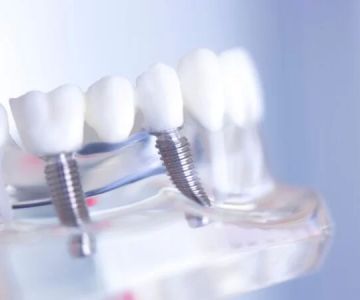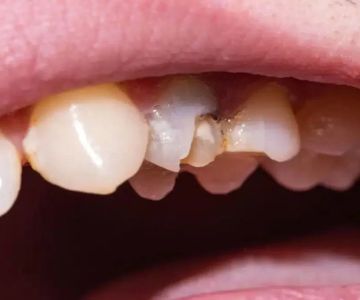Understanding the Path to Becoming a Dentist
Becoming a dentist is a rewarding yet challenging career path that requires years of education and training. If you are considering this profession, one of the first questions you may ask is, "What GCSE grades do I need to become a dentist?" The road to dentistry typically starts with excellent academic performance, and in the UK and many other countries, GCSEs (General Certificate of Secondary Education) play a crucial role in determining whether or not you can move on to further education in this field.
In this article, we’ll break down the necessary GCSE grades, the key subjects you should focus on, and the steps involved in becoming a dentist. Whether you're just starting your GCSE studies or looking ahead to your career, understanding the educational requirements for dentistry will help you make informed decisions about your academic path.
The Importance of GCSEs for Dentistry
GCSEs are essential qualifications in the UK, marking the completion of secondary school education. For those wishing to pursue a career in dentistry, your GCSE grades are often the first hurdle you must clear. Dental schools typically have strict entry requirements, and your GCSE grades are one of the primary ways they assess whether you are academically prepared for the rigorous study involved in dentistry.
It's also important to recognize that while GCSE grades are necessary, they are not the only requirement. A strong academic record, paired with practical skills, a passion for healthcare, and a deep interest in science, will also contribute to your success in dental school and ultimately in your career as a dentist.
What GCSE Grades Do You Need for Dentistry?
To get into dental school, you typically need to have achieved excellent grades at the GCSE level. This includes strong performance in subjects that are directly related to dental school entry. The grades required will vary depending on the dental school and country, but there are general guidelines you can follow.
1. High Grades in Science Subjects
For aspiring dentists, strong performance in science subjects is absolutely essential. At GCSE level, this typically means achieving top marks in the following subjects:
- Biology: As the most directly related subject to dentistry, biology is crucial. You'll study the human body, how it works, and what happens when things go wrong. A solid understanding of biology is necessary to move forward in dental school.
- Chemistry: Dentistry involves understanding chemical processes, from the structure of teeth to the composition of dental materials. A good grade in chemistry is essential for gaining admission to most dental schools.
- Physics: Although less directly related than biology and chemistry, a good grasp of physics can help with understanding dental equipment, radiographs, and the mechanics behind treatments.
In general, top dental schools will require at least an A or A* grade in each of these science subjects. Some schools may also accept a combination of high grades in science and a B grade in other subjects, but the better your grades, the more competitive your application will be.
2. Strong Performance in Mathematics
While not as important as the sciences, mathematics is still a key subject when applying to dental school. Dentistry involves precise measurements, calculations related to dosages, and the application of statistical and analytical methods. You’ll need to demonstrate strong mathematical abilities at the GCSE level, usually with a grade of B or above.
In some countries, dental schools may have specific math requirements, especially if the program involves a more technical or scientific focus. For this reason, it’s wise to focus on achieving at least a B or A grade in mathematics.
3. English Language and Literature
Communication skills are crucial in dentistry, whether you're discussing treatment plans with patients, working with a team, or reading medical literature. Therefore, English language and literature GCSEs are important for aspiring dentists.
While the required grade may vary, most dental schools will expect a minimum grade of C or B in English. It is essential to demonstrate that you can effectively communicate, both in writing and verbally, with patients and colleagues.
4. Additional Subjects: What Else You Might Need
In addition to the core subjects, some dental schools may look for additional subjects that indicate well-rounded academic abilities. These could include:
- Physical Education: Although not always required, PE demonstrates your physical stamina and discipline, qualities that are useful in the demanding work environment of a dentist.
- Other Languages: In a diverse field like dentistry, knowing another language can be a useful asset. Some schools may even give preference to applicants who are bilingual, especially in multicultural communities.
5. Meeting Specific Entry Requirements
Each dental school has its own set of entry requirements. While most schools will expect you to have top grades in biology, chemistry, and mathematics, some schools may also require you to take additional exams or attend interviews. It’s important to check the specific requirements of each school you're interested in applying to and ensure that you meet them all.
6. The Role of GCSEs in Dental School Admissions
Your GCSE grades are a fundamental part of your dental school application, but they are just one part of a much bigger picture. Most dental schools also require A-levels or equivalent qualifications, a personal statement, and a proven passion for healthcare. Some schools may also require work experience in a dental setting to demonstrate your commitment to the profession.
While your GCSE grades are important, dental schools are looking for candidates who not only excel academically but also demonstrate practical skills, empathy, and a strong work ethic.
How to Improve Your Chances of Becoming a Dentist
While your GCSE grades are essential, there are other ways to improve your chances of getting into dental school:
- Work Experience: Gain experience in a dental clinic or volunteer in healthcare settings. This will help you understand the realities of working in the field and show admissions officers that you are committed to becoming a dentist.
- Develop Soft Skills: As a dentist, you'll need to work well with others, manage patients, and handle stressful situations. Developing these soft skills now can give you an edge in your application.
- Consider Further Education: If your GCSE grades aren’t as high as you would like, consider taking further educational courses, including A-levels, a foundation year in science, or a pre-dental program to boost your qualifications.
Conclusion: Start Planning Your Path to Dentistry Today
Becoming a dentist requires dedication, hard work, and a strong academic foundation. The GCSE grades you achieve will play a pivotal role in your ability to progress to dental school, but they are just the start. To become a successful dentist, you’ll need a combination of academic excellence, practical experience, and a genuine passion for healthcare.
If you're determined to pursue this rewarding career, focus on achieving high grades in the relevant subjects, seek out work experience, and build your skills and knowledge every step of the way. With persistence and determination, you can make your dream of becoming a dentist a reality.







 Westgate Dental Arts
Westgate Dental Arts Coventry Family Dental
Coventry Family Dental Familia Dental
Familia Dental Dr. Daniel S. Fife, DDS
Dr. Daniel S. Fife, DDS Dentistry At Suburban Square: Michael I. Wollock, DMD
Dentistry At Suburban Square: Michael I. Wollock, DMD Comfort Care Dental
Comfort Care Dental The Importance of Oral Health Education During Pregnancy for a Healthy Pregnancy
The Importance of Oral Health Education During Pregnancy for a Healthy Pregnancy Why Skipping Dental Checkups Can Lead to Bigger Oral Health Problems
Why Skipping Dental Checkups Can Lead to Bigger Oral Health Problems Best Tips for Brushing Your Teeth Properly for Healthy Gums: Essential Techniques for Oral Health
Best Tips for Brushing Your Teeth Properly for Healthy Gums: Essential Techniques for Oral Health Advantages of Porcelain Dental Restorations
Advantages of Porcelain Dental Restorations How Can Diabetes Cause Tooth and Gum Problems? Preventing and Managing Oral Health Issues
How Can Diabetes Cause Tooth and Gum Problems? Preventing and Managing Oral Health Issues Healthy Habits for Promoting Good Oral Health and Hygiene: Tips for a Healthy Smile
Healthy Habits for Promoting Good Oral Health and Hygiene: Tips for a Healthy Smile